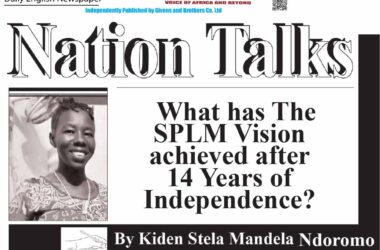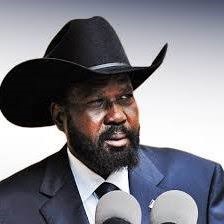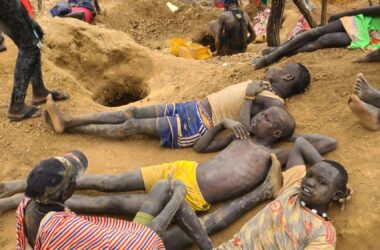By Hassan Arun Cosmas
The Catholic bishop of Yei Diocese is calling for improvement of civil military relations in greater Yei region.
The call came during his meeting with the team leader of UNMISS in Yei and the Ceasefire Transitional Security Arrangements Monitoring and Verification Mechanism (CTSAMVM) on Monday in Yei.
Bishop Alex Lodiong Sakor believed that for genuine peace to be realized there is need to improve the civil-military relations.
He regretted that if the military does not relate well with the civil population, peace will not prevail.
“For us to realize peace, we need to do the following, one we need to improve the civil-military relation because the moment our military does not have good relationship with our citizens, let us not dream about peace because peace is realized from good relationship. Once people are able to relate cordially with one another, that is when peace will settle, so these things have to be addressed,” he said.
“I want to acknowledge what the commissioner said on improvement of certain things. The level of harassment we used to see some years back has reduced and we want to build that. That is a key area where we can consolidate peace,” the catholic Bishop added.
In response to the call of the Bishop, Jacqueline Nakayenze CTSAMVM team leader applauded the steps taken by the bishop to visit and share with them information.
She called on the religious leaders to continue preaching the gospel to the people and reconcile the conflicting communities.
The CTSAMVM team leader appealed for sensitization of the population on peace to avoid revenge.
Jacqueline emphasized on educating the public on the importance of reporting cases of atrocities committed against them by men in uniform to the police.
“So, we believe that the Church cannot get tired. Please continue to preach the gospel and the sensitization that is already ongoing and continue with the reconciliation process because it is one of the greatest challenges that we found on the ground here. Most of the atrocities committed are as result of revenge. People still keep grudges for long time but I think that with the sensitization and good messages from the church, people will have forgiving hearts,” said the CTSAMVM leader in Yei.
“I would emphasize that please encourage our population to always go to the police to report whenever bad things are done to them because we want justice to be done to them but if there is no report, then it is not a case,” he added.
Meanwhile James Mugo, UNMISS Yei based team leader called for building of structures at the local level to build resilience and encourage return of people from the refugee camps.
He encouraged embracing peace and security in the communities by engaging the people on peace and security.
“Once we build the structures, we can build resilience in the community to encourage the returnees. So, our focus will be getting more involved in the Bomas and Payams to see how we can build resilience and stabilization in those communities expecting high potential of returnees so that we can support and build preparation of the ground for the return of the refugees,” he said.
“One way of preparing the ground is by ensuring there is peace and security in the communities. Having community engagement in peace and security so that as they come back, they will take ownership of their own security in the communities,” he lamented.
Earlier the director of civil-military relation for greater Yei counties Michael Machar had confirmed great improvement on the civil-military relations.
He has also been encouraging both the military and civil population to peacefully coexist for peace to reign in the areas of greater Yei.
Civilians and military have ever lived together and coexisted peacefully in the greater Yei region until July 2016 when conflict started in the area which caused displacement of the people to the refugee settlement and others as internally displaced.
Since then it became very difficult for the two parties to coexist as civilians were afraid of seeing men in uniform because of all that had been done to them.



